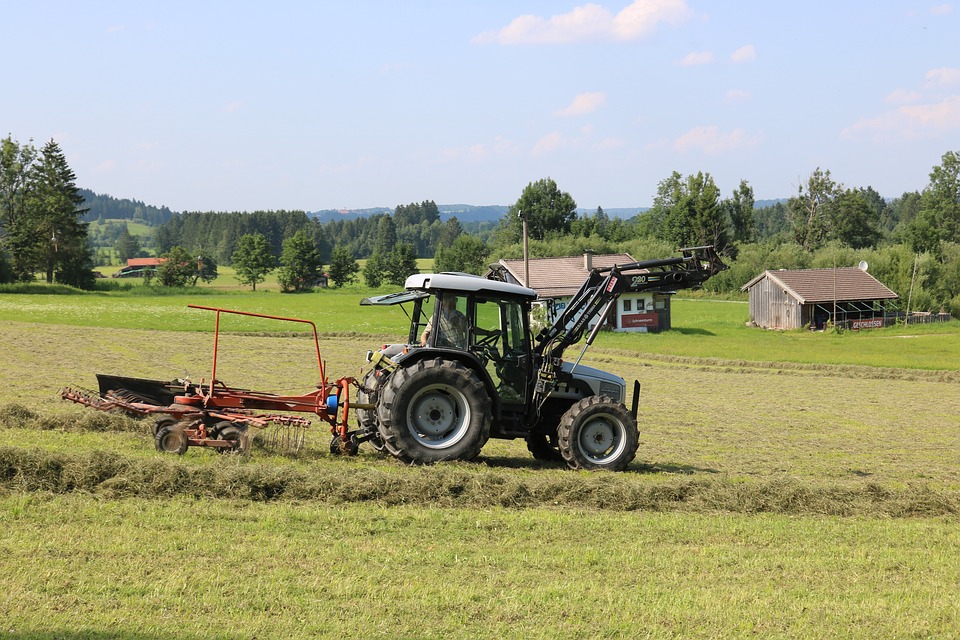
Agricultural Engineer: Job Duties, Role, Skills, and Career Path
Who Is an Agricultural Engineer?
An agricultural engineer applies engineering principles to solve real-world farming, food production, and land management challenges. Their work bridges technology and agriculture, designing tools, machines, and systems that help improve farming productivity, sustainability, and environmental protection.
Agricultural engineers work on various projects, such as developing irrigation systems, designing machinery, or advising on eco-friendly land-use practices. They aim to make agriculture more efficient, safe, and environmentally sound.
Key Responsibilities of Agricultural Engineers
Agricultural engineers contribute to multiple areas of agricultural development.
The basics tasks and responsibilities include:
-
Designing and installing irrigation systems to maximize water use and crop yield.
-
Planning the layout of farms, greenhouses, and other agricultural facilities for better efficiency.
-
Developing and testing new farm machinery and tools, including tractors, harvesters, and planting systems.
-
Advising on best practices for soil, water, and crop management, including pest control and resource conservation.
-
Maintaining agricultural infrastructure, such as drainage systems, roads, or storage facilities.
-
Researching to improve existing agricultural processes, technologies, and environmental sustainability.
These engineers often work in cross-disciplinary teams with agronomists, environmental scientists, and policymakers.
Skills Required in Agricultural Engineering
To work effectively, agricultural engineers need a diverse set of technical and soft skills:
1. Technical Knowledge
-
Proficiency in engineering principles related to soil, water, energy, and mechanical systems.
-
Familiarity with agricultural practices, including irrigation, planting, harvesting, and storage.
2. Analytical and Problem-Solving Skills
-
Ability to assess agricultural challenges and develop practical, data-informed solutions.
-
Strong aptitude in mathematics, physics, and environmental science.
3. Communication Skills
-
Ability to explain complex ideas clearly to farmers, stakeholders, and non-engineers.
-
Collaboration with multidisciplinary teams.
4. Project and Time Management
-
Experience in planning and executing engineering projects within a timeline and budget.
5. Computer and CAD Skills
-
Knowledge of design software like AutoCAD or SolidWorks for modeling and simulation.
-
Use GIS (Geographic Information Systems) for land and water resource management.
6. Research and Data Interpretation
-
Skills in conducting field studies, collecting data, and applying statistical analysis to improve farming methods.
Daily Tasks of an Agricultural Engineer
The specific duties may vary depending on the area of employment, but often include:
-
Creating blueprints for irrigation systems, drainage plans, or planting layouts.
-
Performing field tests on agricultural machinery and analyzing results.
-
Writing technical reports and documenting design specifications.
-
Visiting farms or processing facilities to oversee equipment installation and performance.
-
Training farmers or technicians in the use of new tools and methods.
-
Coordinating with environmental officers to meet local and international agricultural standards.
Work Settings and Industries
Agricultural engineers work across several sectors, such as:
-
Private agricultural equipment manufacturers
-
Government research and policy departments
-
Environmental and land-use planning agencies
-
Farms and agribusiness companies
-
Universities and research institutions
-
International development organizations
Career Opportunities in Agricultural Engineering
Agricultural engineers can specialize in several areas or advance to leadership roles. Here are some career paths within the field:
1. Farm Systems Engineer
Designs layouts for efficient farm operations, including machinery, livestock housing, and storage units.
2. Irrigation Engineer
Focuses on water management strategies to optimize crop production while conserving resources.
3. Environmental Engineer (Agriculture)
Develops methods to reduce soil erosion, manage waste, and protect natural resources.
4. Equipment Design and Testing Specialist
Works with manufacturers to create innovative tools and machinery that meet farmers' needs.
5. Research Scientist
Conducts experiments to find better ways to grow crops, control pests, or reduce costs.
6. Policy and Regulatory Advisor
Contributes to policy development concerning sustainable agriculture, food safety, and land use.
7. Agricultural Consultant
Provides expert advice to farms, NGOs, and development projects on implementing engineering solutions.
8. Academic Instructor
Teaches agricultural engineering in universities and technical institutes, guiding future engineers.
Educational Requirements
Minimum Qualification
To enter the field, one must have a bachelor's degree in agricultural engineering or a related field (e.g., mechanical engineering focusing on agriculture).
Relevant Coursework
-
Soil and water engineering
-
Agricultural machinery
-
Environmental systems
-
Hydraulics and irrigation
-
Engineering mechanics
-
Precision agriculture
-
CAD and GIS applications
Postgraduate Options
A master’s or doctoral degree may be needed for roles in advanced research, academia, or specialized fields such as biotechnology or climate-smart agriculture.
Certifications and Licenses
In some countries, agricultural engineers must be licensed as Professional Engineers (PE). Certifications in project management, environmental compliance, or sustainable agriculture can also enhance job prospects.
Job Outlook and Salary
According to the U.S. Bureau of Labor Statistics:
-
Job growth for agricultural engineers is steady, with increasing demand for sustainable food systems.
-
Median salary (U.S., 2023): Approximately USD 83,000 per year.
-
Salaries vary based on experience, specialization, and geographic location.
Why Choose a Career in Agricultural Engineering?
-
Opportunity to improve food security and sustainability.
-
Blend of fieldwork, technology, and design.
-
Contribution to global environmental goals and rural development.
-
Diverse roles across public, private, and nonprofit sectors.
Conclusion
Agricultural engineering is a vital profession that combines science, technology, and problem-solving to improve food production and land management. With climate concerns rising and global food demand increasing, skilled agricultural engineers are more essential than ever. This career offers job stability and the chance to make a meaningful impact on society and the environment.


